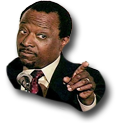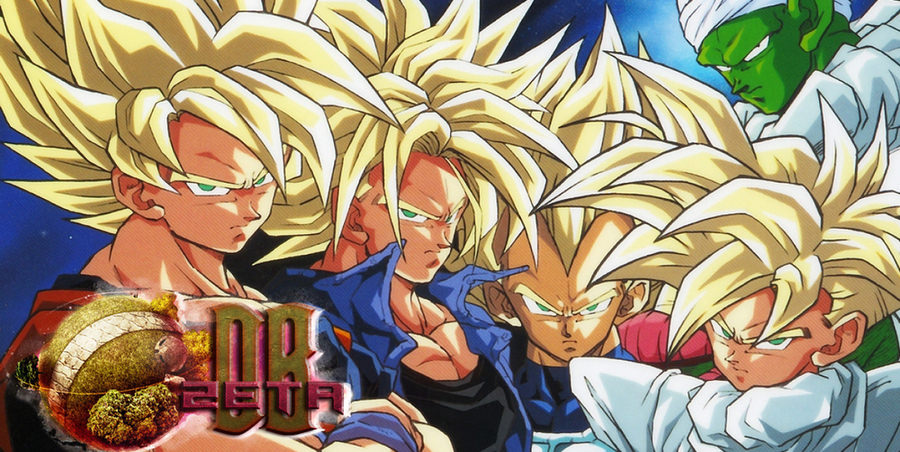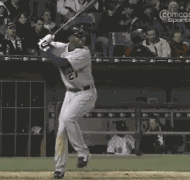You are using an out of date browser. It may not display this or other websites correctly.
You should upgrade or use an alternative browser.
You should upgrade or use an alternative browser.
Since the bandwagon for this has appeared...
- Thread starter Captain Cadaver
- Start date
- Joined
- May 31, 2015
- Messages
- 27,967
In terms of design, it's a big tie between Coola's 5th form, Cell's Perfect form, Janemba's 2nd form and SS4.
- Joined
- Mar 26, 2017
- Messages
- 14,754
- Age
- 22
What's your favorite Dragon Ball Arc? Super and GT included.
- Joined
- May 30, 2015
- Messages
- 30,963
GreatSaiyaman123 said:What's your favorite Dragon Ball Arc? Super and GT included.
Super and GT arcs wouldn't be in the favorites of anyone that's sane

- Joined
- Mar 26, 2017
- Messages
- 14,754
- Age
- 22
Toshit might like Bogs. You know, the Goku wanking and stuff.
Fearless has bumped his head as a kid since he likes Super, so it might be one of his favorites as well
Fearless has bumped his head as a kid since he likes Super, so it might be one of his favorites as well
- Joined
- May 31, 2015
- Messages
- 27,967
Hunt for the Dragon Balls/Emperor Pilaf Arc since it was the only one to have all the cast be relevant, developed each one by a serviceable amount and didn't have any direct flaws that weren't the result of later arcs contradicting some events. Saiyan Arc would be the top spot if it weren't for how little sense it made for the humans to surpass Raditz with less than 1 year of Kami's training, as well as Piccolo's Namekian heritage being a slight retcon.GreatSaiyaman123 said:What's your favorite Dragon Ball Arc? Super and GT included.
- Joined
- Jun 1, 2015
- Messages
- 30,769
- Age
- 29
How come Toei at times can be so facking good (early/pre-time-skip One-Piece & DragonBall come to mind straight-away) and then can be so facking horrible other times (DragonBall Super, post-time-skip One-Piece format 1 chapter = 1 episode)?
I do have to say though Toei can really get the emotional things right-on. They really know how to do that well. Like this year alone I can think of the ending to the Episode of East-Blue special with a new version (epic nostalgic version) of the first One-Piece theme and then showing images of future members or allies.
I do have to say though Toei can really get the emotional things right-on. They really know how to do that well. Like this year alone I can think of the ending to the Episode of East-Blue special with a new version (epic nostalgic version) of the first One-Piece theme and then showing images of future members or allies.
- Joined
- Jun 1, 2015
- Messages
- 30,769
- Age
- 29
They created a department called "DragonBall Room", but what no-one knows is that that name is just a cover-up for the real purpose of the room - How to wank Galu.Idea of Gaslight said:Too much of their resources are going into producing Galu porn called Enter the Dragon Fist.
- Joined
- May 31, 2015
- Messages
- 27,967
One major reason would be how they work as a company. They're very good at knowing what trend to go for at the right time, at a time where very few studios are doing the same, thus allowing them to stand out. In the 70s, they got hold of the Go Nagai works that were pioneering some of the most popular sub-genres of today such as Cutie Honey, Mazinger Z and Devilman. In the 80s, they got the most popular battle Shonen of the time, Kinnikuman, Hokuto no Ken, Dragon Ball and Saint Seiya. The 90s had them boost the popularity of Mahou Shoujo with Sailor Moon and go further with the battle Shonen with One Piece and the Monster battle fad with Digimon, and in modern times they've rode on the nostalgia bandwagon with Super and Digimon Tri. However, this shows that they're more suited to be business men rather than animators.Fantastische Hure said:How come Toei at times can be so facking good (early/pre-time-skip One-Piece & DragonBall come to mind straight-away) and then can be so facking horrible other times (DragonBall Super, post-time-skip One-Piece format 1 chapter = 1 episode)?
I do have to say though Toei can really get the emotional things right-on. They really know how to do that well. Like this year alone I can think of the ending to the Episode of East-Blue special with a new version (epic nostalgic version) of the first One-Piece theme and then showing images of future members or allies.
The appeal of Toei was them grabbing a handful of good or decent shows and that despite taking many liberties in areas, this could allow them to stand out in unique ways. For instance, not being able to replicate Hokuto no Ken's art style allowed them to try their own which whilst not an equal, was still good at it's peak and became iconic. Saint Seiya's recycling of animation lead to it providing more build up for each character's attack with the pre-attack poses, etc. Music is also another main drawing point as I like the ost of most the shows they did, with OP's ost, HnK's ost and DB's Kikuchi score being amongst my favourite soundtracks of anime.
However, tying things together, Toei's flaw was not ageing well as a company. Sure, they had their faults even from the start, such as Osamu Tezuka abandoning their adaptations of his works and founding his own studio, but they still worked well with what they had beyond filler material. Their standing in the modern day is most likely due to how many more anime and studios there are than when they were founded and how they're covering many of the types of shows they once did. The Mecha and Mahou Shoujo genres are done by almost every studio and most battle Shonen have started to be picked up by studios like Bones, Madhouse, etc. Without being able to grab any new fish, Toei can only work with what they've got.
As for the decline of these series, it's likely a combination of the source material's decline and trying to keep up with the source material. One Piece has become more battle heavy than dialogue heavy from Marineford and onward than in the past, so a slow pace is probably what's keeping them from catching up to the manga. It's the opposite case with Super, in which the pacing is so the monthly manga can catch up with the anime.
Series that go on weekly for years without seasonal breaks would also put too much stress on their underpayed workers for them to keep to a high standard as well.
- Joined
- May 31, 2015
- Messages
- 27,967
Out of those I've seen
#1 - Angel Beats
#2 - Boku no Hero Academia
#3 - Tokyo Ghoul
#4 - Madoka Magica
#5 - Shingeki no Kyojin
#6 - Bleach
#7 - Shigatsu wa Kimi no Uso
#8 - Mirai Nikki
#9 - Elfen Lied
#10 - Highschool of the Dead
#1 - Angel Beats
#2 - Boku no Hero Academia
#3 - Tokyo Ghoul
#4 - Madoka Magica
#5 - Shingeki no Kyojin
#6 - Bleach
#7 - Shigatsu wa Kimi no Uso
#8 - Mirai Nikki
#9 - Elfen Lied
#10 - Highschool of the Dead
- Joined
- May 31, 2015
- Messages
- 27,967
Haven't bothered to watch the cancer that is SAO and only bothered adding the series as a whole rather than individual seasons.
- Joined
- May 31, 2015
- Messages
- 27,967
They still seem to be following the Golden Age movie continuity though, seeing as how they share the same seiyuu. That, and it would be more accurate to say I was going by franchises rather than individual canons.
- Joined
- May 31, 2015
- Messages
- 27,967
I've heard a few reasons, such as the animators and directors mainly working on lighthearted Shoujo comedies that didn't require fluid animation prior to it, though not one specific reason to it's lack of quality.Idea of Gaslight said:Did you hear the reason why the last 2 seasons of Berserk were such trash?
Dumbed down edgelord version of Reinhard/Light who overcomes most challenges through broken superpowers rather than actually clever strategies like those two, regardless of how the series portrays him. He was at least tolerable for what he was for R1, even if making some very big oversights (eg. Not just commanding everyone to be his loyal slaves until R2). R2 ruins what worth his character had by having him get some rapid moodswings with him pulling a 180 on how he felt for his adoptive brother and becoming a complete Gary Stu once gaining the Double Geass asspull, at which point logic's thrown out the window. It also doesn't help that we never see any sort of reasoning or development as to his retaining or changing of motivations. He has no reason to keep on going without Nunally who he assumed was dead for most of the season beyond boring revenge and no reason to avenge his mother when realising she was alive and trolling him (and even decides to kill her). His meeting with Charles is where his character's motivations become completely nonsensical and unsalvageable thereafter.Keedounan said:Just for fun, I'll ask you to rate characters from MyAnimeList, in order to see how much popularity is accurate
First on the list is Lelouch, who is quite popular there.
1/10


